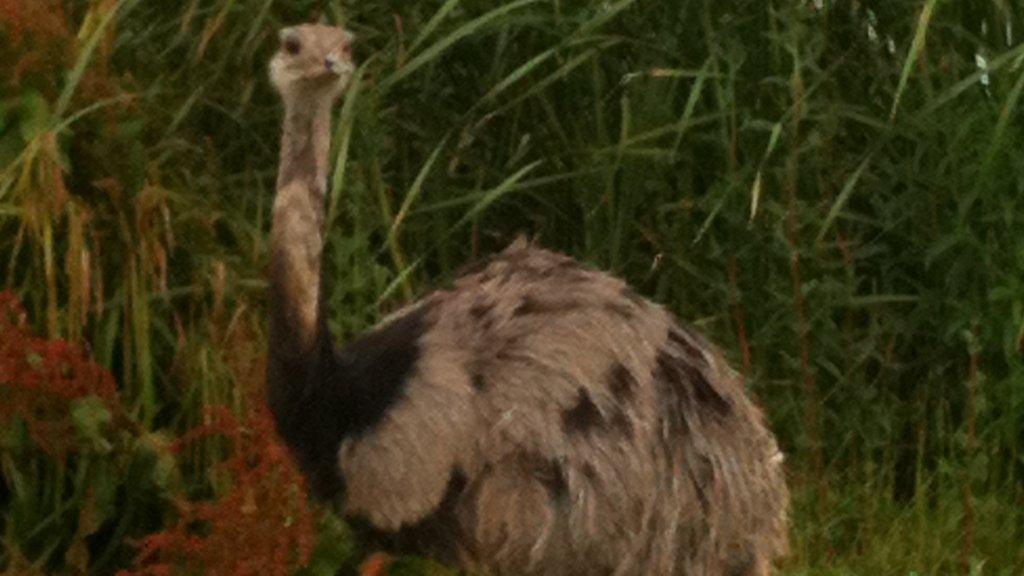Rhea birds running wild on Hertfordshire housing estate
- Published
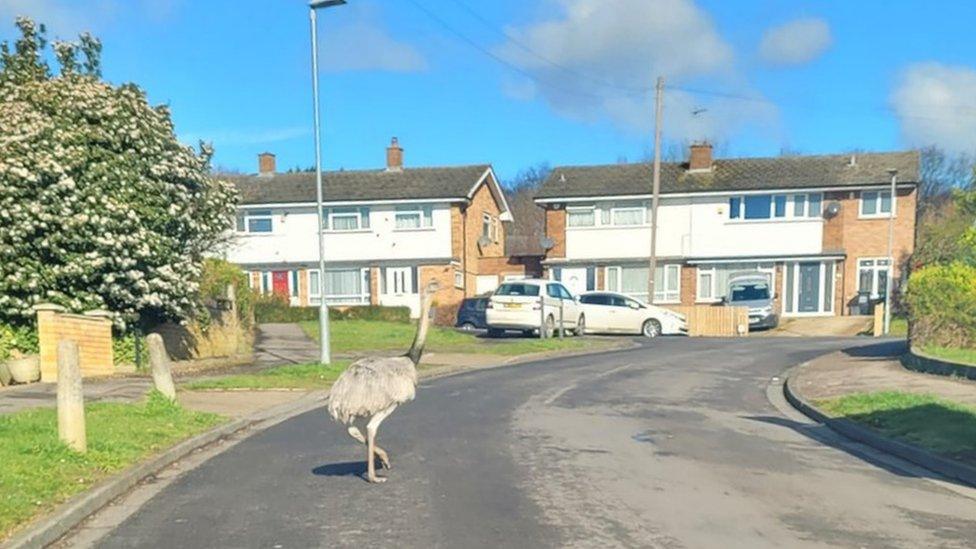
The flightless birds, which are similar to ostriches but smaller, have been spotted in the Maple Cross area of Hertfordshire
Up to 20 rhea birds that have been running around a housing estate will be sent to an animal reserve when captured, police said.
The "unusual sight" has been spotted at Maple Cross, close to the M25, Hertfordshire Police, external said.
The force was working with Three Rivers District Council, external and highways teams to "come up with a plan".
Police said they had tried to identify owners, but concluded the flightless birds were effectively wild.
The birds have been compared to Road Runner, from the Looney Tunes carton, on social media.
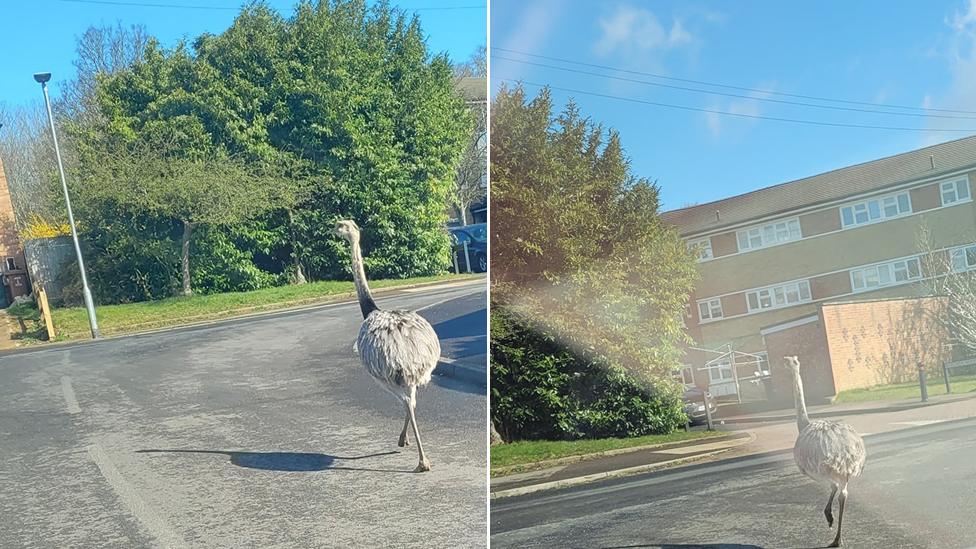
Sian Janusz spotted one of the rhea and said "I don't want him to get hit by a car"
PC Christian Gottmann, from the Rickmansworth and District Safer Neighbourhood Team, said the birds were "an unusual sight on the streets" and that police and Three Rivers District Council were working on a plan to capture and rehome them.
"Inquiries are ongoing, but if you think you may be able to help with this, please get in touch with us," he said.
He advised the public not to approach the "fast" animals as they were "aggressive if cornered".
"Unfortunately we have received reports of them attacking dogs and deer, so we ask that dog owners are vigilant when out walking," he added.
A Hertfordshire Police spokeswoman said the precise number of birds on the loose was unknown, but the local policing team believed it could be up to 20.

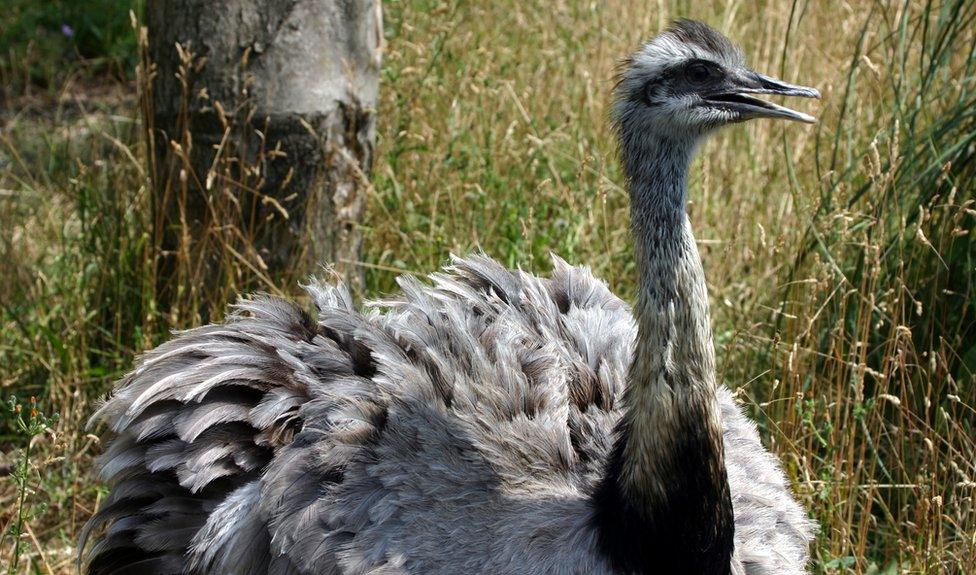
Private owners do not need a licence to keep rhea in the UK
Greater rhea
originates from South America, and is the continent's largest bird
can run at speeds of up to 50mph (80km/h)
reaches 5ft (1.5m) in height and can weigh about 50lb (20kg)
during breeding season, females lay an egg every other day for a week to 10 days
females share their ground nests, which can contain up to 50 eggs
Source: National Geographic, external

Find BBC News: East of England on Facebook, external, Instagram, external and Twitter, external. If you have a story suggestion email eastofenglandnews@bbc.co.uk, external
Related topics
- Published25 March 2021
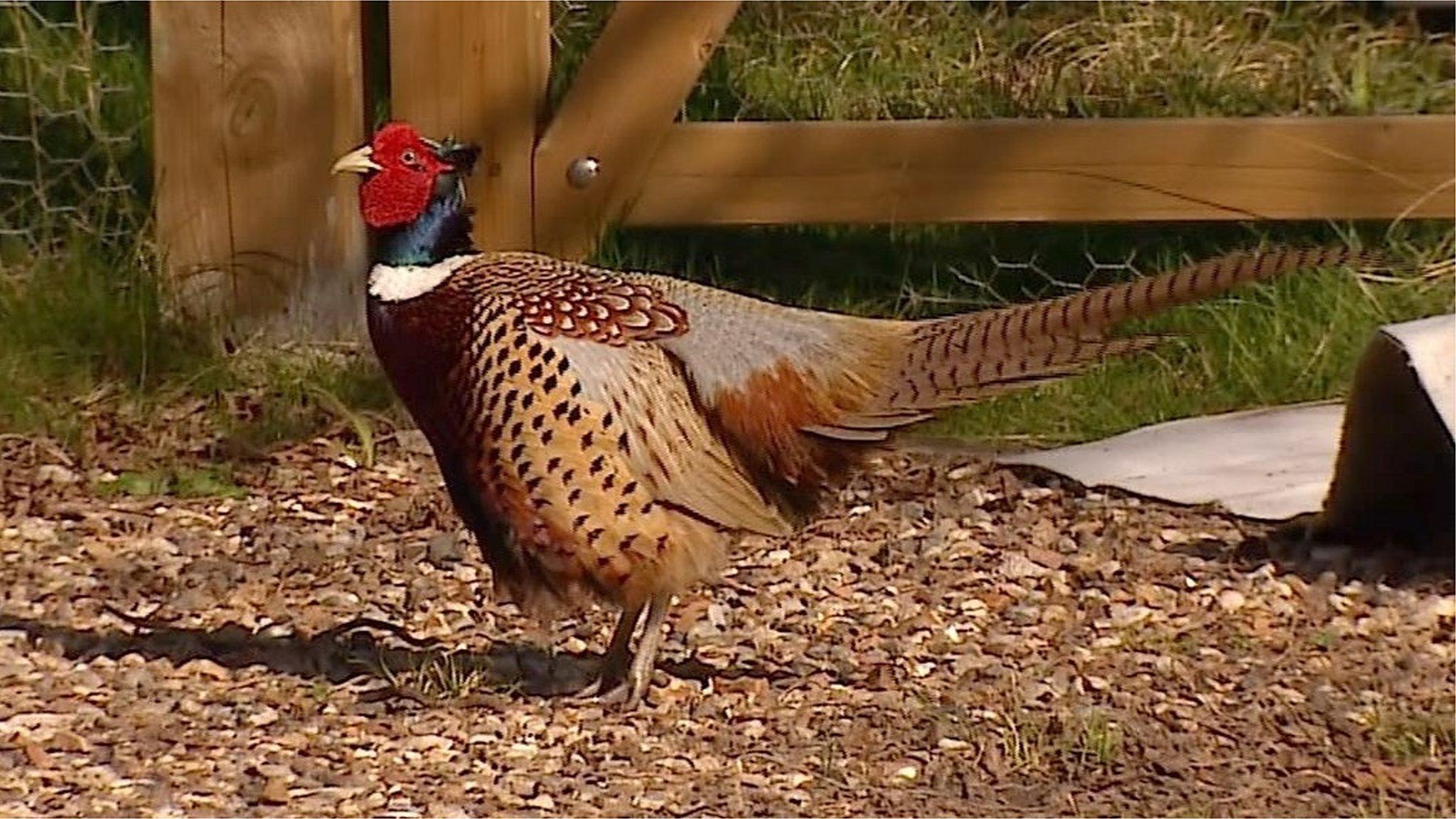
- Published14 January 2019
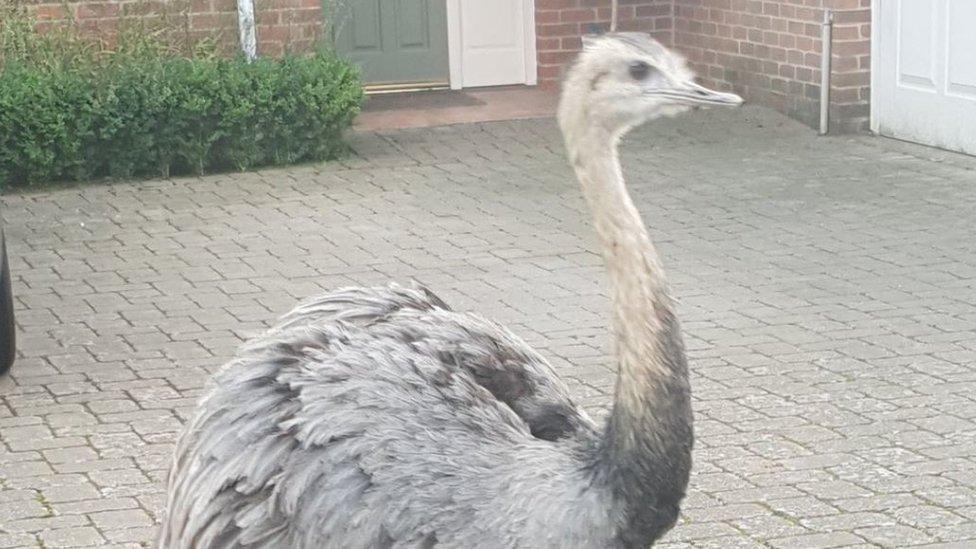
- Published12 January 2015
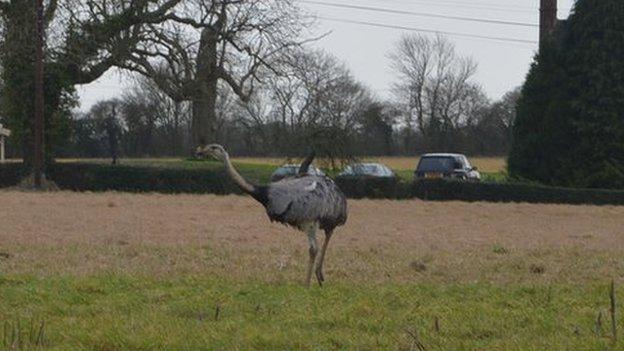
- Published20 April 2014
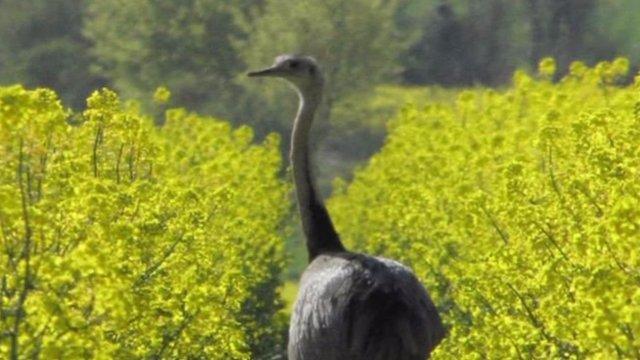
- Published3 July 2012
